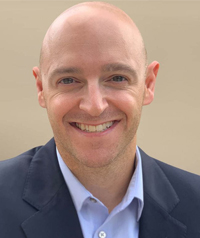
Director of the Eisenhower Working Group
Overview
The Eisenhower Working Group on Economic Statecraft, which resides at Texas A&M University under the purview of the Economic Statecraft Program at the Bush School of Government and Public Service, is a fully funded entity focused solely on non-conflicted service to the United States Government.
At the requests of national policymakers, the Eisenhower Working Group on Economic Statecraft provides relevant and timely analysis by tapping into the extensive experience of the U.S. private sector while drawing on interesting and useful knowledge from academia. The Eisenhower Working Group on Economic Statecraft provides bench strength and bandwidth to address the important – urgent and non-urgent – issues that policymakers often do not have sufficient time to consider as deeply as they might like.
Membership
We are a small team of practitioners and academics – serving as honest brokers in the national interest– who provide bandwidth for objective analysis by connecting the expertise of the private sector and academia with the needs of government. With direct access to leaders across these three worlds, the Working Group can convene a range of partners and forums to marshal complementary capabilities and knowledge to bring to bear on the most pressing needs of government in the arena of economic statecraft.
How We Work: Our Approach to Enhancing Collaboration
To achieve our goal of increased collaboration across government, the private sector, and academia, the Eisenhower Working Group on Economic Statecraft leverages time in pursuit of the following:
- Respond to demand signals from the United States Government on specific workstreams, innovative public-private-academic research projects, and lines of effort against issues of concern that enhance available options for decision makers.
- Provide intellectual bandwidth to United States Government policymakers – from Deputy Assistant Secretaries to Cabinet Secretaries – so that the urgent does not always crowd out the important.
- Convene relevant partnerships from across the interagency, private sector, and academia through monthly informal settings and an annual conference to address current challenges in collaborative ways.
A great challenge for the United States Government, given the American way of life, is to harness latent economic power dispersed across the spectrum of U.S. economic actors in ways that effectively and efficiently advance enduring U.S. national interests. We begin by asking one key question: How does the United States compete with the People’s Republic of China while adhering to relatively free market American principles?

